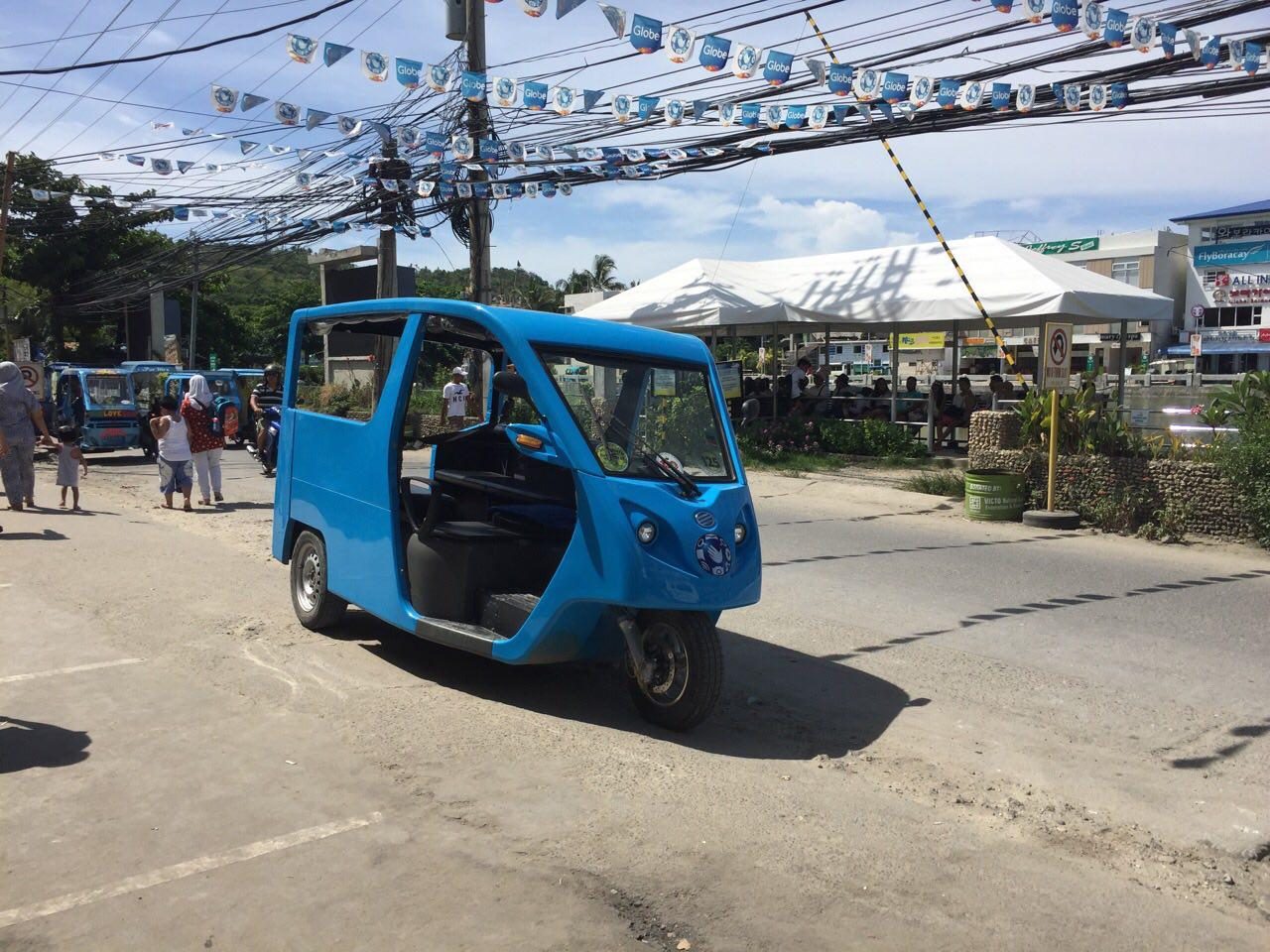SUMMARY
This is AI generated summarization, which may have errors. For context, always refer to the full article.

MANILA, Philippines – The Department of Energy (DOE) has thrown its weight behind the $504-million e-trike project amid rumors that it would be scrapped.
Energy Undersecretary Donato Marcos gave the assurance to the Electric Vehicle Association of the Philippines (EVAP) during a recent meeting.
Marcos said that the project, first announced in 2014, was proceeding as planned, even after other government agencies said it might be discontinued.
Partly financed by the Asian Development Bank (ADB) and the Clean Technology Fund (CTF), the e-trike project aims to put 100,000 locally produced e-trikes on the road to reduce carbon emissions and boost the income of drivers.
There were questions about the future of the project after the National Economic and Development Authority (NEDA) expressed concern over the slow pace of the project’s implementation.
Marcos dispelled the concern. “In fact, BEMAC, the winner of the first package of initial 3,000 e-trikes for roll-out, is set to make its first batch of deliveries by the end of September and the rest by the end of the year.”
He added that “the next batch to be bidded out by the DOE will be done within the year as well” for a total of 6,000 units of e-trikes.
The DOE, he said, is currently talking to several local government units that are interested in participating in the project and deploying the e-trikes in their respective areas.
Improved plan
While the project will still continue, refinements are needed to prevent wasting funds, NEDA OIC-Director Violeta Corpus told Rappler in a phone interview on Wednesday, August 10.
The main issue, Corpus explained, is that because of the slow progress of the project, the ADB and CTF loans are already two years old and have begun to incur commitment fees.
“We committed to the loan, we borrowed from them but so far it isn’t being tapped so the concern is how to minimize losses,” she said.
Corpus pointed out, however, that the May elections did delay the project as the new heads for all government agencies had to be brought up to speed on current projects.
The NEDA official said the initial batch of 3,000 e-trikes is already signed off on, so what the DOE is doing right is finding the partners – the LGUs or tricycle driver associations – that will be the final recipients of the units.
The DOE also needs to make the proper implementation arrangements in terms of how partners will pay for the e-trikes.
“Afterwards, the DOE has to come back to the Investment Coordination Committee (ICC) to present the final and confirmed action plan on how to use the loan in terms of the realistic number of e-trike units that needs to be manufactured and delivered and to whom the final recipients will be,” Corpus said.
Then, she said, “the ICC will decide on whether to use the full remaining loan amount, or to cancel it or to set aside a smaller portion of the loan for the next batches of e-trikes.”
Corpus said that the project is still on the table for as long as a more detailed plan is presented. “We want the DOE to think it over and come back to the ICC,” she added.
Industry support
EVAP president Rommel Juan, for his part, said the organization fully supports the DOE project. They expect it to serve as a catalyst for the Electric Vehicle (EV) industry.
“In preparation for the upcoming next set of biddings, we have actively dialogued with DOE to give our inputs on how we can further improve the terms of reference of the bid and make them more suitable for local adoption based on EVAP members’ experiences,” he said.
Juan also pointed the DOE to “some of the effective EV systems already running in the country including the KEA in Bacoor, Cavite; Tojo Motors in Boracay; and EV Wealth in Mandaluyong which can serve as benchmarks for how we can improve the rollout of e-trikes.” – Rappler.com
Add a comment
How does this make you feel?
There are no comments yet. Add your comment to start the conversation.